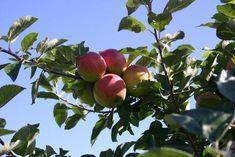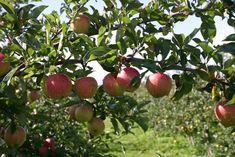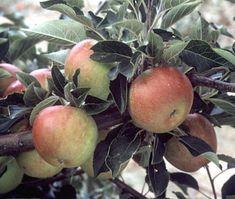


English top-fruit growers are unlikely to be able to meet the demand of their multiple customers this season, despite encouraging early crop forecasts.
Support for domestic fruit, short in supply from the supermarkets until relatively recent years, has grown to unprecedented levels. And with planning already largely in place for the 2007-08 campaign, Yorkshire-based chains Asda and Morrisons, singled out as lagging behind their multiple rivals by English Apples & Pears (EAP), have both signalled their intention to come to the party.
“We are seeing the most phenomenal pre-season planning and determination from the multiple retailers to maximise English sales,” said EAP’s chief executive Adrian Barlow. “We received fantastic support last year, but there were weaknesses. Asda and Morrisons have both recognised the huge potential they have to increase sales and are both putting in place plans to change radically their performance in the coming season.”
Volumes are expected to rise across the portfolio of English varieties (see chart), although Barlow stressed that inconsistent weather patterns still pose a significant barrier to forming an accurate picture for a season that is still two months from hitting its straps. “The prospects for the crop are very good at this early stage,” he added. “But it has to be added that there is always the potential for things to go badly wrong. Two growers in north Kent have had their entire crops wiped out by hail already, and more hail and wind damage is a definite possibility before picking.
“The surge in demand is creating huge competition and all of the supermarkets are trying to source additional volume. It is an extraordinary turnaround compared to just three years ago and, quite frankly, we may not be able to meet the demand that is out there.”
Frost has chipped an estimated one million tonnes off the Polish crop, Hungary has lost around 60 per cent of its crop, and weather problems in other eastern European production regions will mean severe shortages for the processing market and also the large fresh markets in Germany and the Czech Republic, Barlow said. This will take pressure off the UK market, as additional central European fruit will be diverted to those marketplaces.
Possible shortfalls might set the alarm bells ringing for UK buyers who are faced with a clean transition from southern- to northern- hemisphere fruit, but the prevailing situation is nevertheless a boost for the future of growers in the UK, as long as the market remains patient.
“There has to be a realisation that we can’t just turn on the tap for more fruit by planting trees,” Barlow said. “Firstly, nurserymen are not just going to bud up until they are sure that the demand will be there and secondly, it is five years before we see commercial volume from new trees. But there has been a lot of new planting taking place.”
ESTIMATED VOLUME (July 9)
VARIETY (tonnes) Y-O-Y
Cox 48,400+15%
Gala 25,600+20%
Braeburn 8,500+41%
Egremont 4,300+7%
Discovery 2,400+26%
Worcester 1,800+20%
Spartan 1,800+5%
Bramley 59,000+13%



